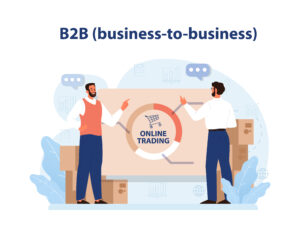What is Automotive eCommerce?
Automotive eCommerce is the process of buying and selling cars and car-related services through online platforms. It’s an innovative approach that blends technology with the traditional automotive industry, allowing customers to browse, customize, and purchase vehicles without stepping foot in a showroom. From viewing detailed car specifications and comparing prices to virtual test drives, automotive eCommerce brings the entire car buying journey to the digital world.
Why Automotive eCommerce?
The shift towards automotive eCommerce is driven by the convenience and efficiency it offers to both buyers and sellers. For customers, it means the freedom to shop for cars at their own pace and on their own time, without geographical constraints. For dealers and manufacturers, it opens up a broader market, reduces overhead costs, and provides valuable data on consumer preferences. This digital transformation is not just a trend; it’s reshaping the automotive sales landscape, making it crucial for businesses to adapt and embrace this change.
The Digital Shift in Car Buying
Gone are the days of hopping from one dealership to another. Now, the journey to purchasing a car often starts and ends online. This shift isn’t just about selling cars online; it’s about creating a seamless, hassle-free experience for both buyers and sellers. As customers lean into the comfort of shopping from anywhere, anytime, the automotive industry is stepping up with innovative eCommerce solutions.
Benefits of Embracing eCommerce in the Automotive Industry
Expanded Market Reach and Global Presence
eCommerce in the automotive industry opens doors to a broader customer base beyond traditional geographical boundaries. Automotive businesses can leverage online platforms to reach customers nationally and globally, breaking free from the limitations of physical storefronts. This expansion enables companies to tap into diverse markets, catering to different demographics and regions. By operating sales 24/7 through eCommerce, automotive businesses ensure constant availability to customers worldwide, maximizing sales opportunities and revenue potential.
Data-Driven Insights for Personalized Experiences
In the realm of automotive eCommerce, data analytics plays a pivotal role in understanding customer behaviors and preferences. By harnessing customer data collected through online platforms, automotive businesses gain deep insights into consumer buying patterns, interests, and demographics. This wealth of information empowers companies to create personalized shopping experiences tailored to individual customers. From recommending specific car models based on past purchases to offering targeted promotions on automotive accessories, personalization enhances customer engagement and drives sales in the competitive automotive eCommerce landscape.
Enhanced Customer Service and Support
Automotive eCommerce platforms prioritize customer service excellence through instant support and streamlined communication channels. Features such as live chat, chatbots, and dedicated customer service portals enable prompt resolution of inquiries, order tracking, and issue management. The accessibility of real-time support enhances the overall customer experience, fostering trust and loyalty among online shoppers. By prioritizing efficient customer service in automotive eCommerce, businesses strengthen relationships with customers and differentiate themselves in a crowded marketplace.
Operational Efficiency and Cost Savings
Implementing eCommerce in the automotive sector streamlines operations and reduces overhead costs associated with traditional retail. Online inventory management optimizes stock levels, minimizing inventory holding costs and reducing the risk of overstocking or understocking. Automated order processing and fulfillment enhance operational efficiency, enabling faster delivery and reduced labor costs. Moreover, digital marketing strategies in automotive eCommerce, such as targeted email campaigns and social media promotions, offer cost-effective alternatives to traditional advertising methods, yielding higher ROI and driving sales growth.
Adaptability to Changing Consumer Behavior
Consumer behavior in the automotive industry is rapidly evolving towards online shopping and digital experiences. Automotive eCommerce allows businesses to adapt and respond to these changing behaviors by offering convenient and accessible shopping options. Mobile-friendly platforms and intuitive user interfaces cater to consumers’ preferences for seamless digital transactions. By embracing eCommerce, automotive companies demonstrate agility and responsiveness to market trends, positioning themselves as leaders in the digital transformation of the automotive retail landscape.
Challenges Facing Automotive eCommerce
Logistical and Regulatory Hurdles
Managing diverse automotive inventory and navigating regulatory compliance require efficient inventory systems and partnerships with experienced logistics providers.
Cybersecurity Concerns
Protecting sensitive customer data and financial transactions demands robust security measures like secure payment gateways and regular software updates.
Adapting to Rapidly Changing Technology and Consumer Expectations
Staying competitive means embracing innovation with responsive website designs, AI-driven customer service, and leveraging data analytics for consumer insights.
Strategies for Mitigating Challenges
Invest in Technology Solutions
Utilize advanced inventory management systems, secure payment gateways, and cybersecurity tools to enhance efficiency and data protection.
Ensure Regulatory Compliance
Collaborate with legal experts to navigate industry regulations and maintain compliance with automotive standards.
Embrace Innovations
Adopt emerging technologies like AI and AR to enhance the online shopping experience and meet evolving consumer preferences.
Focus on Customer Support
Educate customers about online automotive shopping benefits and provide responsive support to build trust and satisfaction.
Best Practices for Automotive Businesses Transitioning to eCommerce
For automotive enterprises embarking on the digital transition, the creation of a user-friendly, responsive website is not just an advantage—it’s a necessity. This digital storefront is often the first point of contact between your business and potential customers, setting the tone for their entire shopping experience. To ensure success, here are some refined strategies:
- User Experience (UX) Design
Implement intuitive navigation and a clean layout to make the user’s journey through your site as straightforward as possible. High-quality images, detailed product descriptions, and easy access to support can significantly enhance the UX. - Robust Cybersecurity Measures
In an era where data breaches are all too common, safeguarding your customers’ information is critical. Employ state-of-the-art encryption, secure payment gateways, and regular security audits to build and maintain trust. - SEO and Content Marketing
Utilize search engine optimization (SEO) to improve your site’s visibility on search engines. Combine this with compelling content marketing to engage potential customers, driving both traffic and conversions. - Comprehensive Online Support
Offering multiple channels for support, including live chat, email, and phone, ensures that customers can easily find help when they need it, enhancing overall satisfaction.
The Role of B2B eCommerce Platforms in Automotive Sales
B2B eCommerce platforms are revolutionizing the way automotive sales operate, creating a more connected and efficient industry. By enabling streamlined transactions between manufacturers, suppliers, and dealers, these platforms offer several key benefits:
- Supply Chain Optimization
With features designed to enhance visibility and coordination across the supply chain, businesses can anticipate demand more accurately, manage inventory more effectively, and minimize costs. - Integration Capabilities
The ability to seamlessly integrate with existing ERP, CRM, and other business systems ensures that data flows smoothly across all channels, reducing manual entry and errors. - Enhanced Customer Experience
B2B eCommerce platforms tailor the shopping experience for dealers and distributors by offering personalized pricing, recommendations based on purchase history, and real-time visibility into product availability. This customization streamlines the purchasing process, making it more efficient and user-friendly. - Expanded Market Access
These platforms enable manufacturers and suppliers to tap into new markets, including international territories, by providing an always-on, global sales presence. This expansion can significantly broaden their customer base and increase sales opportunities. - Strategic Data Insights
With the integration of advanced analytics, B2B eCommerce platforms collect and analyze data from numerous transactions. This wealth of information allows businesses to spot trends, predict customer behavior, and make informed decisions that drive strategic growth. - Enhanced Marketing Effectiveness
Leveraging detailed customer profiles and purchasing data, these platforms facilitate targeted marketing campaigns that are finely tuned to the audience’s needs, resulting in higher engagement and conversion rates. - Scalability and Flexibility
As businesses grow, B2B eCommerce platforms scale seamlessly to support increased demands, more extensive product lines, and additional sales channels, all while maintaining efficiency and controlling costs. - Environmental Benefits
By optimizing the supply chain and reducing the reliance on physical stores, these platforms contribute to significant reductions in carbon emissions and overall environmental impact, promoting sustainability in business operations.
Future Outlook for Automotive eCommerce
As we look to the horizon, the trajectory of automotive eCommerce is set for continued expansion and innovation. Emerging technologies like AI, blockchain, and IoT are poised to further enhance operational efficiency, customer engagement, and personalized shopping experiences. The agility to adapt to these changes will be paramount for businesses aiming to succeed in the evolving digital marketplace.
Conclusion: TotalOne’s Value in the Automotive eCommerce Landscape
As the automotive industry accelerates towards a digital future, TotalOne stands ready to empower businesses with our advanced automotive eCommerce solutions. Our platform is designed not just to meet the current needs of the industry but to anticipate and adapt to future trends and technologies. With TotalOne, businesses gain a partner with the expertise, technology, and vision to drive digital transformation, improve customer satisfaction, and capture new growth opportunities.
By embracing TotalOne’s eCommerce solutions, automotive businesses can navigate the digital shift with confidence, leveraging our platform to connect with customers in meaningful ways, streamline their operations, and stay ahead in a competitive market. The future of automotive sales is undeniably online, and with TotalOne, the path to digital success is clear. The time to embrace this transformation is now, and TotalOne is the partner you need to make the journey successful. Interested in our automotive e-commerce solution? Contact us today!



